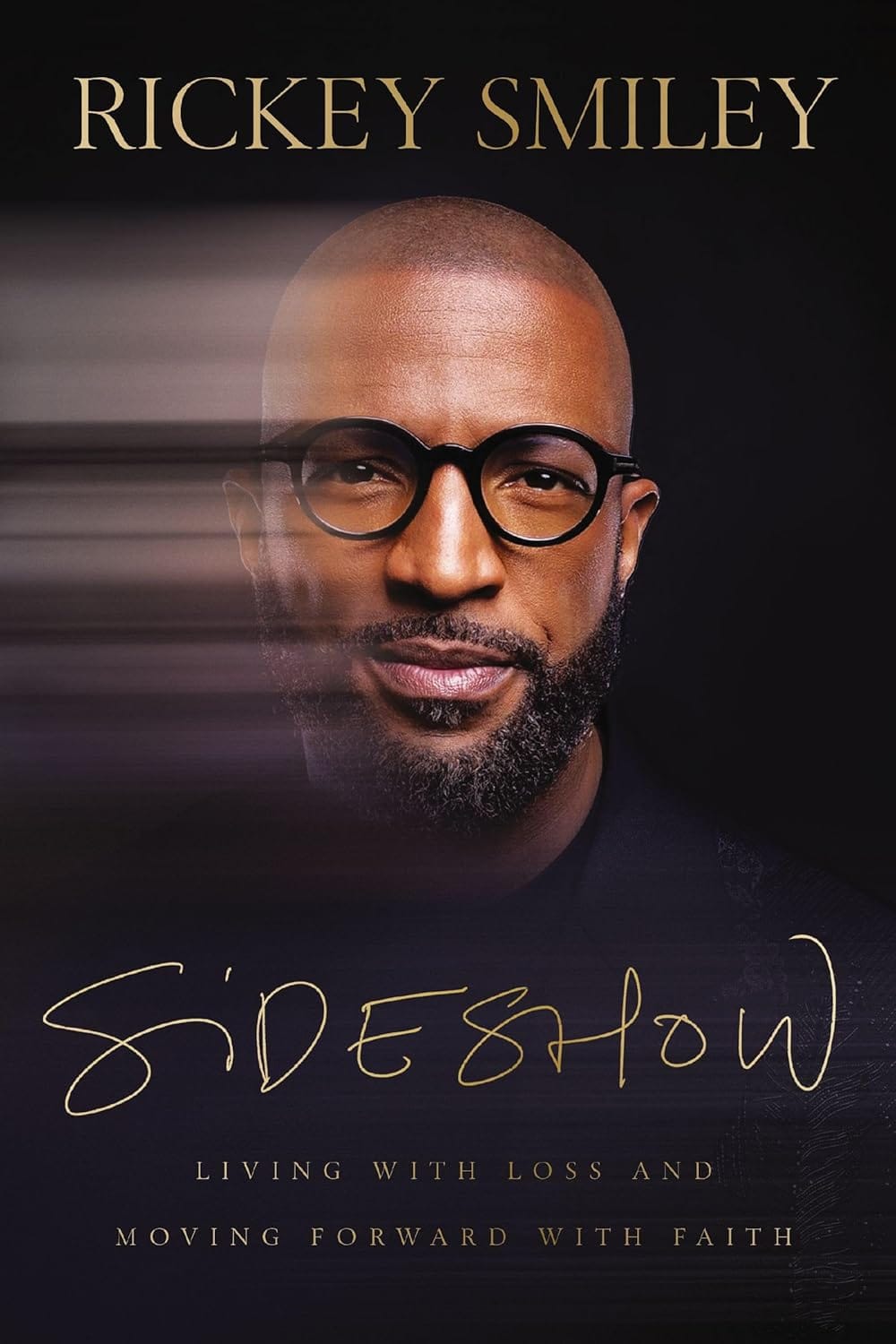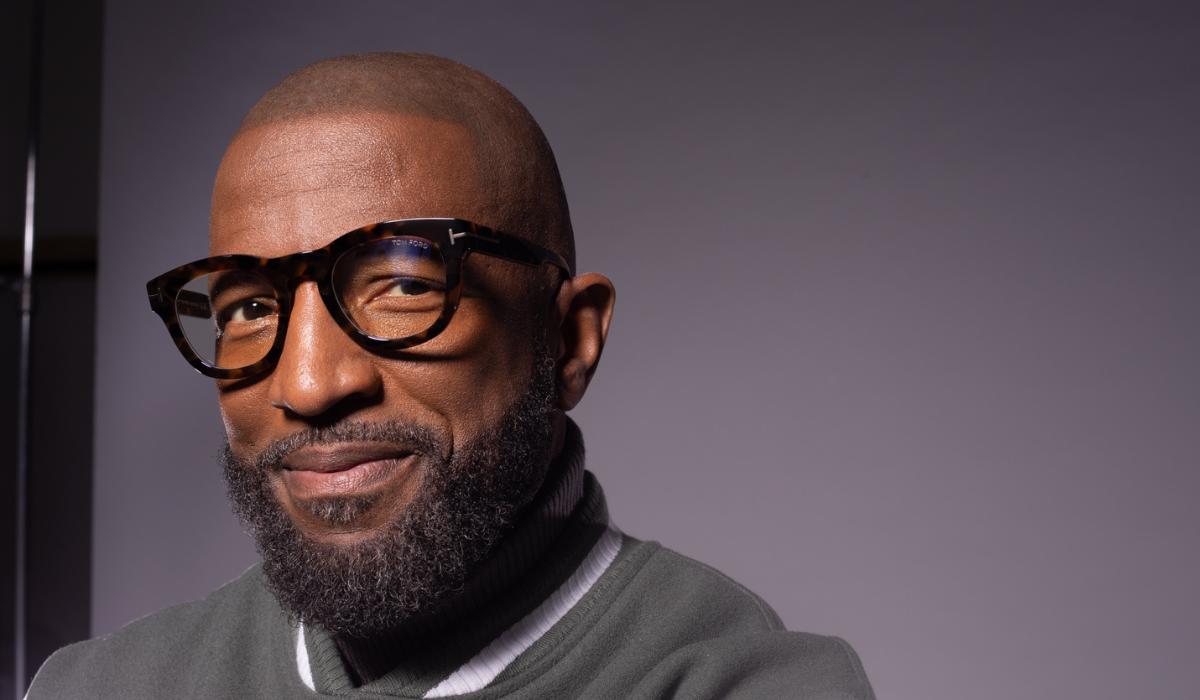TV Host Rickey Smiley on the Pain of His Son’s Addiction—and How He Found the Faith to Move Forward
Rickey Smiley has built a career making people smile. But for the beloved stand-up comedian and host of the Rickey Smiley Morning Show, the last several years have been filled with loss and devastation. His son Brandon died in early 2023 after a long battle with substance abuse. He was only 32. Years prior, Smiley lost his father from drug addiction.
Ever the one to shed light for others, Smiley has been open about his grief journey and what has helped him move forward. It's also become his mission to spread awareness about our society's collective need to have "uncomfortable, tough, and necessary" conversations about addiction, he says. He shares all that he went through and all that he's learned in his beautiful new book, Sideshow: Living with Loss and Moving Forward with Faith. Heartfelt and honest, Sideshow is a story of a father's pain and newfound hope, which Smiley hopes will help others with similar struggles.
Recently, near the start of Substance Abuse Awareness Month, observed every October, The Sunday Paper called Smiley, a father of four, to learn more about his journey and mission, what is giving him hope, and the critical action we must take to keep our younger generations safe.
A CONVERSATION WITH RICKEY SMILEY
Your book begins with you taking us through that harrowing day you learned your son Brandon had died. How has the process of writing about this for your book and talking about it been?
Believe it or not, it's actually been a relief. It has allowed me to write and then cry, write and then cry. Crying really helps, just as long as you don't get yourself in a space of depression. Sometimes, we try to hold it in and not cry. So, this has all helped me release and talk out my feelings, which is something that my therapist recommended I do. I've gotten used to talking about it, and now I see it as therapy to talk about it all and not just put it away as if it never happened.
For so long, you've been showing up for people, giving us light and reasons to laugh—and you are still doing this as you navigate your loss and grief. What has helped you see the light through all this?
One of the things that has helped me through the grief is realizing that I am helping other people. Many people do a lot of things; there are lots of foundations and programs based on someone losing their child so their child's death won't be in vain. As my mother has always said, some have to die so others can live. So, whether it's talking about grief, talking about addiction, talking about fentanyl and the use of fentanyl, or whatever it might be, it's about helping people.
This book might save some lives. It might help people through their grieving process. Being a public figure, radio personality, and comedian, people look to you for leadership, and when they look to you for leadership and you have a platform, you have to lead because people need you. People are going through the same things, and as a matter of fact, most of their situations are much worse than yours. So, it gives me a sense of gratitude that I'm able to help people.
At the end of your stand-up performances, you go to the edge of the stage and shake hands with the audience. You've said that you can always recognize the people who have lost children.
Yes. They have a look in their eye that you recognize instantly. It's a deep sadness that I see. I know it when I see it. I understand it. And I hate to have to know that look. But when you start to meet people who have suffered such loss and been through that trauma, you recognize the look.
Your late son Brandon was struggling with addiction for a long time, and you've openly talked and written about how you've made many attempts to help him. Other family members of yours also struggled with addiction. What do you wish people and society at large paid more attention to when it comes to substance abuse?
We have to start having these uncomfortable conversations. We have to start when our kids are elementary school students. We cannot wait. In school, you start out talking about stranger danger, and then you must from there because many people prey on kids. We saw it in cigarette ads that were geared toward a young demographic back in the day. We don't want anything to happen to our youth, so we must start having these conversations early. These are tough conversations, but they are important.
What if someone were to tell you, Rickey, that it's too hard or too scary? What is your advice for where we can start to talk about this?
Here's the problem: If you don't talk about it, you will risk burying them, and you don't want that. You don't want to bury your kids. It's an uncomfortable conversation nobody wants to talk about. So, you want to have the conversation in your own way, based on your kids' sensitivity. But you have to have it. You just have to.
How do these conversations show up as you spend time with your children today?
We talk about it all the time when we're all together. I'm still going through situations where I have to have uncomfortable conversations with them and many corrective conversations—'Where are you going? Who will you be with?' Parenting is not a popularity contest. Sometimes, you will be in a house, and it will be you against the entire house because you have to take a stand on something for their safety and best interest.
Millions upon millions of people are battling with substance abuse today. As humanity faces this hard truth, what gives you hope?
It gives me hope that there are parents out there having a conversation with their kids. People are doing good work in their community, from your little league and football coaches to your librarians, principals, teachers, and community leaders. They give me hope. There are good people out here fighting a good fight. And there are so many people who are former drug addicts and are clean today who are out here saving lives by going to the schools and speaking to the kids. I see people all over the country stepping up to the plate, trying to do whatever they can to save kids. That gives me hope: There are people out there fighting to save lives every day.
When you think of Brandon today, what makes you smile?
I think about how he was more mischievous than anything. He was so funny; I really enjoyed that about him. I loved our time together when Brandon was younger, our connection was roller coasters and going to amusement parks. We loved doing that together. We had a lot of fun.

Rickey Smiley is an acclaimed stand-up comedian, the Marconi award-winning host of the “Rickey Smiley Morning Show,” and a single father of four. Learn more here and follow him at @rickeysmileyofficial
Please note that we may receive affiliate commissions from the sales of linked products.



